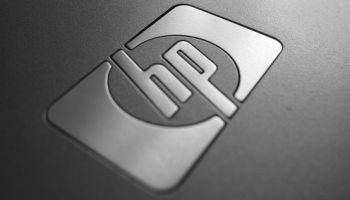Restructuring Moves As Hard Times Hit HP And Cisco

HP and Cisco are both hoping to revive business results. Unlike Cisco, HP will rely on services rather than job cuts
Hewlett-Packard and Cisco Systems may be fierce competitors, but they now are finding themselves in the same boat.
A week after Cisco CEO John Chambers spoke of further company reorganisation and job cuts in the face of continuing disappointing quarterly financial numbers, his counterpart at HP announced May 17 moves he is making to shore up his company as it struggles with a weakening consumer PC market, an underperforming services unit and the residual effects of the March earthquake and tsunami in Japan.
Weakness In The Consumer Market
 Like Chambers, HP CEO Leo Apotheker told analysts and journalists in a conference call that while the company was going through a difficult phase – HP is cutting its profit outlook as it increases spending around the services business – the company’s overall health is strong, and that short-term pains now will only make the future brighter.
Like Chambers, HP CEO Leo Apotheker told analysts and journalists in a conference call that while the company was going through a difficult phase – HP is cutting its profit outlook as it increases spending around the services business – the company’s overall health is strong, and that short-term pains now will only make the future brighter.
“We will continue to manage our business prudently,” Apotheker said during the conference call.
HP’s second-quarter earnings report got off to an inauspicious start when executives were forced to announce the numbers a day early. Initially scheduled for May 18, the announcement was moved after an internal memo from Apotheker to some of his executives was reviewed by the Wall Street Journal. In the memo, the CEO warned of “another tough quarter” coming up and warned that HP “must watch every penny and minimise all hiring. We have absolutely no room for profitless revenue or any discretionary expenditures.”
HP officials have said the memo should not be interpreted as foreshadowing any layoffs.
Brian Marshall, an analyst with Gleacher & Company, said in a May 17 report that HP needs to show itself as a more stable company again.
“Historically known for its consistent performance and operational excellence, [HP] is now associated with more undesirable attributes (e.g., management changes, lowering of guidance, internal leaks, etc.),” Marshall wrote. “In our view, the investment community holds sacrosanct both consistency and lack of surprises from its portfolio companies. Unfortunately, [HP] is delivering neither currently.”
PC Sales Worse Than Expected
During the conference call, Apotheker and CFO Cathie Lesjak said that the consumer PC market, which they had warned earlier this year would continue to be down, turned out to be weaker than expected. That contrasts with the commercial PC market, which Apotheker said continues to undergo a healthy refresh cycle. Overall, HP’s Personal Systems Group saw revenue fall five percent from the second quarter last year. However, revenue from commercial systems grew 13 percent, while consumer client revenue fell 23 percent.
“The PC market continues to be bifurcated,” he said.
Apotheker said the company would continue to work to shore up the consumer PC business, adding that he was optimistic about the upcoming launch this summer of HP’s TouchPad webOS-based tablet. He also said PC demand in Japan would continue to be weak for a while as that country deals with the aftermath of the March 11 earthquake and tsunami. The disasters also will affect HP’s supply chain to some extent.
Economic Uncertainty Slows Sales
Ezra Gottheil, an analyst with Technology Business Research, said it is not surprising that consumer PC orders are off target.
“Consumer PC sales have slowed because of economic uncertainty, the fact that the consumer recovery in PC sales was earlier than the commercial one, and consumer interest in tablet PCs,” Gottheil said in a report, adding that HP’s PC pricing also is playing a role in sales.
However, it’s the services unit that will get much of the attention, with Apotheker announcing that HP will hire a new executive vice president for the business who will report directly to the CEO. In the interim, Ann Livermore, executive vice president of HP’s Technology Solutions Group, will oversee the services business.
HP also will add bodies to the IT services business, which Apotheker has said has focused too much on low-margin services – such as computer repairs – while not focusing enough on higher-margin services and consulting, including application services.
“We have not yet shifted our services business to higher-value, higher-margin and higher-growth categories,” he said. “We have over-executed operationally and under-invested strategically.”
Apotheker Blames Hurst
HP has had a strategy for pursuing the higher-margin services, but has failed to follow it, Apotheker said, noting that the problems began during the tenure of his predecessor, Mark Hurd. The “significant transition of the services business… should have been happening some time ago,” said Apotheker, who has been CEO since November 2010. “It should have been happening before. It will happen now.”
He noted that reinvesting in the IT services business now will mean a healthier unit later. If HP did not do it now, “then we’d be sitting here with a business that was running out of steam,” he said.
Analysts said HP’s direction regarding services will be important.
“HP Services saw gradual improvement in its higher value-added services’ sales in 1Q11,” TBR analyst Beau Skonieczny said in a research note. “However, it will need to be more aggressive to support profitable top-line expansion.”
The success of Apotheker’s efforts will go a long way in determining HP’s longer-term financial health, according to Gleacher & Company’s Marshall.
“If [HP] can successfully drive growth in its IT Services unit over the next few quarters, we believe the company will avoid permanent ‘value trap’ status,” he wrote in his report. “However, if this strategic investment initiative fails to reinvigorate revenue growth in the services group, the company’s financial model will continue to bleed.”